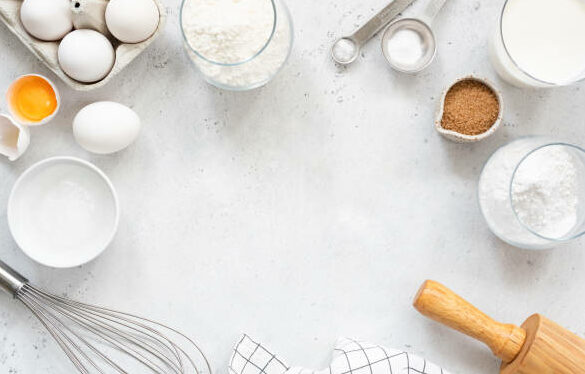 Professionals tend to choose between baking and cooking and learn how to become an expert in one or the other. The question is, is baking more difficult than cooking? Can cooking become as difficult, if not more so, than baking? We are here to answer all your questions.
Professionals tend to choose between baking and cooking and learn how to become an expert in one or the other. The question is, is baking more difficult than cooking? Can cooking become as difficult, if not more so, than baking? We are here to answer all your questions.
Oftentimes, we bake the recipes we cook, which can confuse the issue a bit. Baking, on the other hand, refers to a fairly specific method of cooking and usually involves a particular type of recipe.
When it comes to baking, it’s always important to have little baking tools, especially for decorating cakes and cookies. While you can’t survive on just your baking skills, you can go a long way by learning a few different types of cooking.
People always want to know if baking or cooking is harder and the answer is that both can be difficult at first. Cooking allows for mistakes to be made because you can usually recover or modify recipes.
Baking requires EXACT measurements and cooking times.
Baking is generally considered a healthy cooking method because it does not require large amounts of unhealthy additives such as fat or salt. While baking is generally considered a healthy cooking method, whether or not your baking dish is healthy ultimately depends on your primary ingredients.
People who know me are often surprised to learn that I bake, and am even good at it. Baking is the process of cooking with dry heat, especially in some sort of oven. A traditional bakery/pastry training course takes between 17 and 24 months to obtain a bakery/pastry degree.
Baking refers to cakes, slices of bread, and all sorts of treats, while cooking is about the main meals of the day. Baking enthusiasts love the process, which is much more of an exact science than cooking.
Hard-core cooks cite this exact reason for their preference, as cooking allows more room for creativity.
Tips for beginners
Baking is much more scientific than cooking.
You can (and most often will) season by tasting and adding rather than measuring precise amounts of salt and pepper or get the juice level “right” by watching the reduction and checking the thickness from time to time.
For baking, even 10 ml too much water in your bread dough will make it too dry – 10 ml too much and it will become soft and slimy. If, for example, your recipe says “2 eggs” and they are small, you may need a little more water than the recipe says for the dough to be perfect.
But in this case, you are just compensating for the reduced liquid in the small eggs by adding water to balance it out.
Also, people underestimate how much dough you need to knead to make it come alive. You can easily spend a good 10 minutes on a sour loaf or spelt bread dough until it’s ready to be proven – and the beginning of kneading can be demoralizing because at first the dough just seems like a mess.
The beginning of kneading can be demoralizing because at first the dough just seems like a mess.
Some tips for baking well: measure all your ingredients ahead of time (including breaking the eggs and flouring your pan), have some extra water just in case, have a large clean, and floured surface to knead on, and don’t be afraid to get dirty.
Once the dough has been proofed, remember to roll it out before placing it in the pan to bake.
Also, if you have trouble getting your dough to rise, set your oven to 43 degrees C and you can get your dough to rise in the oven quickly and easily.
